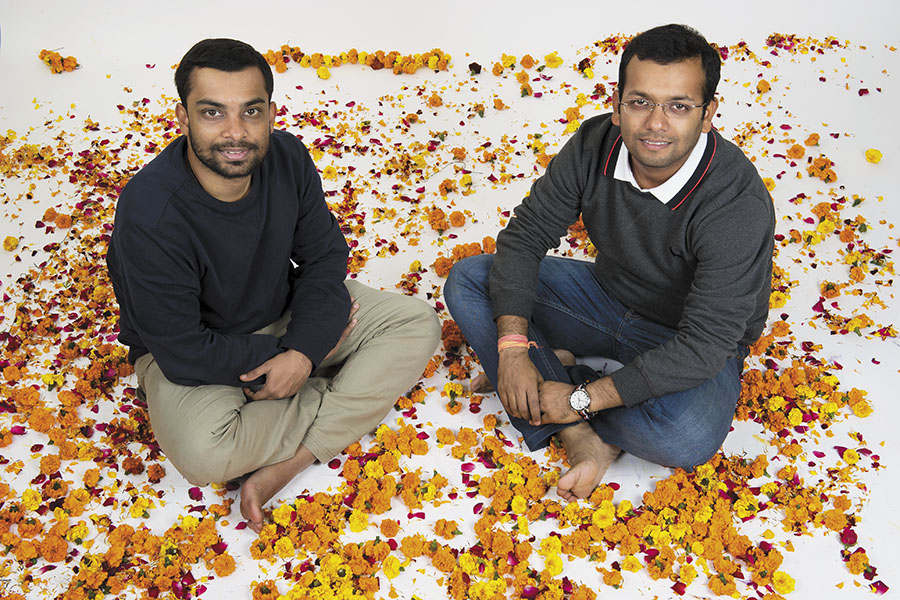 KATOWICE, Poland: An Indian startup which works to clean up the mighty river Ganga by recycling thousands of tonnes of floral waste from temples has been honoured by the UN here.
KATOWICE, Poland: An Indian startup which works to clean up the mighty river Ganga by recycling thousands of tonnes of floral waste from temples has been honoured by the UN here.
Uttar Pradesh-based ‘HelpUsGreen’ has come up with the world’s first profitable solution to the monumental temple waste problem: ‘flowercycling’, a UN document said, hailing the initiative.
As many as 1,260 women have been supported through the startup to date and 19 children whose mothers used to work as manual scavengers have started going to school, it said.
The startup collects 8.4 tonnes of floral waste from temples in Uttar Pradesh on a daily basis. These sacred flowers are handcrafted into charcoal-free incense, organic vermicompost and biodegradable packaging material through its ‘flowercycling’ technology.
Women collect floral-waste daily from temples. The waste is up-cycled to produce organic fertilisers, natural incense, and biodegradable packaging material.
The Indian initiative along with other game-changing initiatives from 13 other countries were honoured as winners of the United Nations Climate Action Award at a special ceremony at the UN Climate Change Conference (COP 24) in Katowice on Tuesday.
“These activities shine a light on scalable climate action around the world. They are proof that climate action isn’t only possible, it is innovative, it is exciting, and it makes a real difference,” said Patricia Espinosa, Executive Secretary of the UN Climate Change.
According to the UN, 11,060 metric tonnes of temple-waste has been flowercycled to date by the women working with the Indian initiave.
As much as 110 metric tonnes of chemical pesticides that enter the river through temple waste have been offset, the income of 73 manual scavenger families has increased at least six-fold and 365 families have been impacted by it through increased living standards and stable income, it said.
Across the country, people bring flowers to temples daily as gifts for the gods, blessings for life, for celebrations to the tune of more than 800 million metric tonnes per year.
These flowers are thrown into the river Ganga and India’s other sacred rivers, a beautiful religious ritual that is having an unfortunate effect.
As the flowers rot, they fill the rivers with waste, dumping toxins like arsenic, lead and cadmium from pesticides, thus causing pollution and enormous levels of water-borne diseases.
Flowers, incense and other religious items come in plastic packaging adorned with images of gods. Devotees do not want to throw away this packaging, so they either leave the packaging under trees or immerse it into water bodies. PTI






